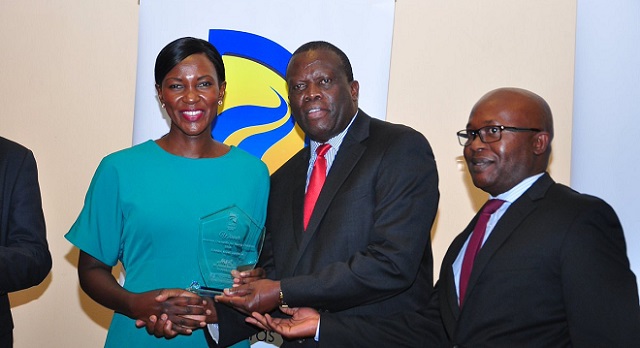
Kampala, Uganda | GODFREY SSALI | Government has moved to regulate the manufacture and processing of packaged water in a bid to ensure safety and security of the public. Cabinet has approved a new policy to streamline the packaged water sector. Packaged water is one of the key industrial sub-sectors with a huge potential for growth considering Uganda’s comparative advantage of vast fresh water reservoirs and the growing domestic and international markets.
Of late, the packaged water industry has attracted tremendous investments. The market for packaged water is available and growing both domestically and also in the EAC and COMESA regions as well in South Sudan and eastern DRC.
Presenting the policy before Cabinet on Friday 29th September 2017, the State Minister for Trade and Industry Michael Werikhe said the policy is designed to promote sustainable production, an integrated monitoring and surveillance framework to promote self regulation by manufacturers, provide incentives for industry to add value to resources of oil and gas sector, and overall, promote fair trade in packaged water.
Werikhe said the policy will go a long way to address the challenges facing the sector mainly the counterfeiting of packaged water which has been rampant in the market, exposing Ugandans to unsafe water. Such counterfeits are mainly produced by unregistered bottlers who operate unlicensed and uncertified facilities.
“Under the new policy, all packaged water manufacturers must be registered and should use multi -barrier technology approach starting from source, processing and distribution of finished products to ensure the safety and security of consumers”, explained Werikhe.
Other challenges in the sector include the evasion of taxes by some manufacturers creating ground for unfair competition, weak enforcement of regulations, and the low level of public awareness of the requirements of good quality packaged water on the market, especially labeling.
Minister Werikhe says with a policy in place, the Ministry and the sector stakeholders will invest in the development of skills in key segments of the packaged water value chain such as abstraction, manufacture, quality management and waste management to protect the environment.
The Ministry will also promote and strengthen the industry association – Uganda Bottled Water Manufacturers Association to complement Government through participating in co-regulation of the sector.
The policy puts emphasis on promoting trade in packaged water and to achieve this, Government shall implement measures that will enhance competitiveness and affordability of packaged water in key sectors such as energy, transport, finance and the general business environment. Government and the relevant stakeholders will promote packaged water as a convenient and safe drink to increase consumption locally and regionally and also create public awareness and mechanisms for proper disposal of used plastic packaging of water.
According to a new report by Research and Markets, the global packaged water industry is one of the fastest expanding industries. The world packaged water market is expected to reach $70bn in value by 2017 and it is stimulated by rising population, consumer spending patterns, lifestyle trends and growing levels of health consciousness, among other factors.
In Uganda, the packaged water industry has attracted tremendous investment with huge potential for generating bigger revenue to entrepreneurs and Government as well as creating a number of employment opportunities for Ugandans. Presently there are about 78 registered packaged water manufacturers whose products are certified by UNBS. This represents only about 50% of the total manufacturers of packaged water and the rest operate as small scale producers as cortege industry. These small scale producers pack water in plastic bottles and some in sachets and are sold cheaply on the market as they cannot afford to certify their products by UNBS. This has caused sale of substandard and counterfeit products on the market.
Currently, the registered manufacturers provide employment to approximately 15,000 people both directly and indirectly and contribute approximately UGX150 billion in tax income to Government annually. The contribution to tax revenue can be more than doubled with effective regulation and implementation of appropriate institutional mechanisms.
 The Independent Uganda: You get the Truth we Pay the Price
The Independent Uganda: You get the Truth we Pay the Price



